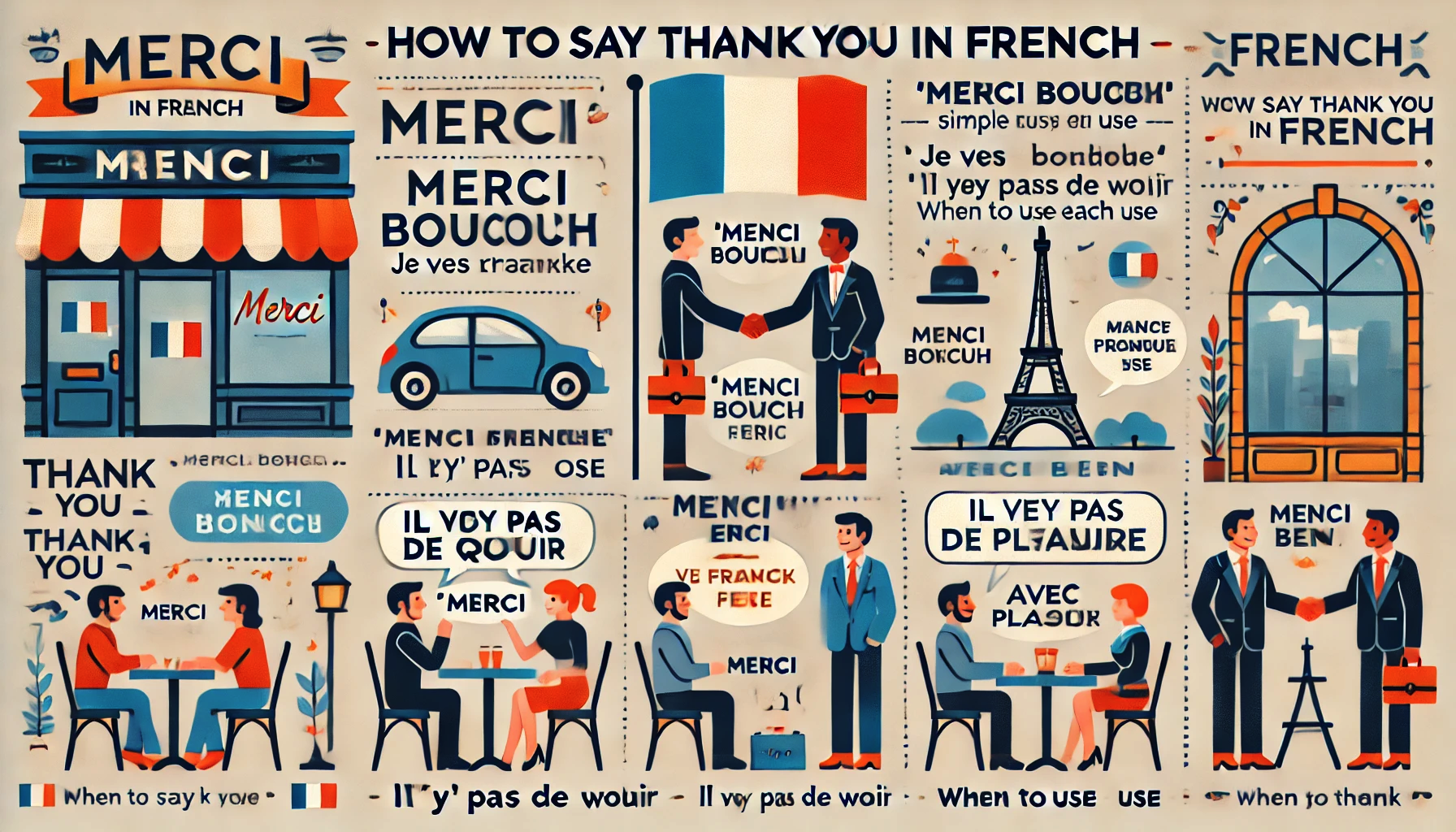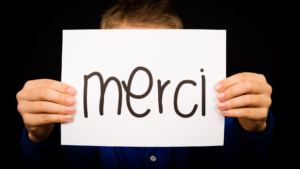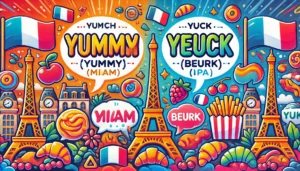The most common way to say thank you in French is merci. It’s short and polite, almost used for every situation. You can use it with strangers, friends, or anyone. If you want to sound warmer or more thankful, say merci beaucoup. That means thank you very much. These are the phrases you’ll hear and use the most in daily life. They are clear, respectful, and easy to say. Start with merci. It works. It’s enough to be polite, understood, and appreciated wherever you go in France.
Basic Gratitude Phrases You Should Know
When you’re ready to go beyond merci, here are a few useful phrases that help you show different levels:
- Merci beaucoup Thank you very much. You’ll hear this everywhere. Use it when someone goes out of their way for you.
- Merci bien Thanks a lot. Slightly less common than merci beaucoup. Sounds a bit more formal or old fashioned.
- Je vous remercie I thank you. Formal. Use it in business emails, at work, or with someone you don’t know well.
- Je te remercie Informal version of the one above. Use it with friends or family.
Each phrase fits different moments. You don’t need to memorize all of them. Focus on the ones you’ll use most often.
When to Use Each Phrase (With Examples)
Choosing the right way to say thank you in French depends on who you’re talking to and where you are. Here’s how to keep it simple.
Everyday use
- Buying coffee at a café Say: merci
- Someone holds the door open Say: merci beaucoup
Formal settings
- Speaking to a teacher, boss, or someone older Say: je vous remercie
- Sending a thank you email for a job interview Say: je vous remercie pour votre temps
Informal settings
- Texting a friend Say: merci or je te remercie
- Family dinner Say: merci beaucoup with a smile
If you’re not sure, just say merci. It’s polite, safe, and never wrong.
Cultural Tips on Expressing Gratitude in France
In France, saying thank you is expected. It shows respect, not just politeness.
- Say it often Whether you’re in a shop, on the street, or at someone’s home, a quick merci goes a long way. People notice when you use it correctly.
- Use the right tone Say it calmly and clearly. Don’t rush it.
- Watch your body language A slight nod or eye contact helps. No need to overdo it. Just be natural.
- Be careful with over thanking Unlike in English, repeating thank you too much can feel awkward in French. One sincere merci is enough.
Understanding these small details helps you connect more naturally with French speakers.
Polite Ways to Respond to Merci
Knowing how to reply when someone thanks you is just as important.
- De rien You’re welcome. This is the most common response. Use it casually with anyone.
- Il n’y a pas de quoi It’s nothing. A bit more polite. You might hear this in shops or restaurants.
- Avec plaisir With pleasure. Use this when you really mean it. It sounds warm and genuine.
Each one fits a different mood. If you’re unsure, stick with de rien. It’s friendly, simple, and always works
Thanking with Emotion or Emphasis
Sometimes, merci isn’t enough. If someone helps you in a big way, or if you’re deeply grateful, these phrases show it.
- Merci infiniment Infinite thanks. Use it when you truly feel moved.
- Mille mercis A thousand thanks. Sounds poetic but still natural. Use it when someone has gone above and beyond.
- Un grand merci A big thank you. Simple, sincere, and widely used.
- Merci pour tout Thank you for everything. Use this when closing a message or ending a conversation.
These phrases are best when you’re saying more than just a polite thank you. They carry weight.
If you’re thanking someone for a great meal, you might also like to learn how to say yummy or yuck in French, especially if you’re reacting to food with feeling.
Common Mistakes to Avoid
Learning to say thank you in French is easy. Still, there are a few things to watch out for.
- Mixing up tu and vous Use tu with friends or kids. Use vous with adults you don’t know well, teachers, or in formal settings.
- Overusing formal phrases Saying je vous remercie in casual chats might sound too stiff. Stick to merci unless the moment truly calls for formality.
- Translating English literally Don’t say “thanks a bunch” or “thanks so much” word-for-word. Stick with native French expressions.
- Forgetting to respond When someone says merci, respond politely. Don’t ignore it, even if you’re in a rush.
Keep it simple. The goal is to sound natural and respectful.
Mini Practice Section: Try These Out
Here are quick everyday situations. See which phrase fits best. ( Press to Reveal the Answer )
Frequently Asked
Is “merci” formal or informal?
It’s neutral. You can use it with anyone. It fits both casual and formal situations.
What’s the difference between “merci” and “je vous remercie”?
“Merci” is quicker and more common. “Je vous remercie” sounds more formal and thoughtful. Use it in emails, speeches, or professional settings.
Can I say “merci” in a business email?
Yes, but if you want to sound more formal, say je vous remercie or merci pour votre retour.
Can I say “merci bien”?
Yes, but it can sound a bit old-fashioned. Use merci beaucoup instead for a more modern tone







